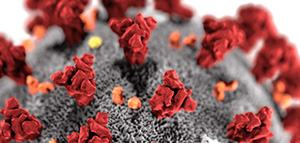Academic Advising
Responsibilities of Advisers and Students
The deans have overall responsibility for monitoring the progress of his or her students toward a satisfactory completion of all graduation requirements. In this capacity, the dean delegates to the vice dean for Student Affairs the responsibility of ensuring the effectiveness of the student advising services in his or her faculty. Responsibilities of the vice dean include the assignment of full-time professors who are responsible for the supervision and training of teaching assistants who serve as academic advisers. All enrolled students are assigned a primary academic adviser, and all students and academic advisers are informed in a systematic way regarding their assignments. Normally, teaching assistants are assigned no more than 30 students per semester.
Teaching assistants are expected to respect students’ rights to confidentiality. They are not, however, expected to solve all problems brought to them by students, but should instead be able to advise students of where they may be able to seek more specialized advice and support (e.g. tutoring, psychological and health services, financial aid, etc.). It is obligatory that teaching assistants keep a record of their meetings, documenting the date of the meeting together with a summary of the main points and any agreed actions. Teaching assistants should also record any non-attendance by students at scheduled meetings.
Teaching assistants and students have a shared responsibility for the advising relationship to succeed. Teaching assistants should encourage their advisees to become engaged in their education, to meet their educational goals, and to develop good learning habits. It is recommended that, in a student’s first semester, teaching assistants meet their advisees three times to support a smooth transition and to provide the foundation for a high quality first semester experience. Thereafter, two meetings per semester are recommended. In addition to formal meetings, teaching assistants should maintain regular contact with their students perhaps through e-mail or other electronic media. Teaching assistants should inform their advisees of their general availability and of any arrangements in place to enable students to contact them at other times. Regular contacts may include, for example, small group meetings with the teaching assistant’s other student advisees. All students must meet with their academic adviser toward the end of the academic year to plan course registrations for the following academic year.
As an integral part of the FUE academic support system, academic advisors have specific responsibilities including the following:
-
Informing new students of FUE’s academic policies, student codes of conduct, and academic requirements as well as conducting orientation sessions for them and their parents
-
Assisting students in the selection and registration of appropriate courses including pre-requisites
-
Monitoring academic progress of students toward their degrees
-
Maintaining student files and records
-
Evaluating transfer transcripts from other institutions
-
Advising students on academic and career choices
-
Assessment of the student advising system and student satisfaction
Assessment of Student Advising and Student Satisfaction
Each year, the dean assesses the effectiveness of student advising in his or her faculty. Results of the assessment are transmitted in a written report to the president and the vice president for student affairs. The report also includes an analysis of student retention, rates of graduation by major (where applicable) and student satisfaction. The dean, the vice president, and the president should annually confer, discuss the report, and develop an action plan to improve the faculty’s academic advising system.
Each faculty is encouraged to survey its graduating students to assess student satisfaction with their overall experience at FUE including advising, instruction, library, facilities, food services, transportation, housing, technology, and extracurricular activities. Results of the survey are to be shared with all stakeholders including professors, students, and administrative staff.
Academic Advising
Academic Advising
Each Faculty will develop its own advising system to provide students individualized personal support throughout their university career culminating in graduation As appropriate for each Faculty the advising system should be aided through electronic communications and records Information needed
Responsibilities of Advisers and StudentsThe deans have overall responsibility for monitoring the progress of his or her students toward a satisfactory completion of all graduation requirements In this capacity the dean delegates to the vice dean for Student Affairs the responsibility of ensuring the effectiveness of the student advising services in his or her faculty Responsibilities of the vice dean include the assignment of fulltime professors who are responsible for the supervision and training of teaching assistants who serve as academic advisers All enrolled students are assigned a primary academic adviser and all students and academic advisers are informed in a systematic way regarding their assignments Normally teaching assistants are assigned no more than students per semesterTeaching assistants are expected to respect students rights to confidentiality They are not however expected to solve all problems brought to them by students but should instead be able to advise students of where they may be able to seek more specialized advice and support eg tutoring psychological and health services financial aid etc It is obligatory that teaching assistants keep a record of their meetings documenting the date of the meeting together with a summary of the main points and any agreed actions Teaching assistants should also record any nonattendance by students at scheduled meetingsTeaching assistants and students have a shared responsibility for the advising relationship to succeed Teaching assistants should encourage their advisees to become engaged in their education to meet their educational goals and to develop good learning habits It is recommended that in a students first semester teaching assistants meet their advisees three times to support a smooth transition and to provide the foundation for a high quality first semester experience Thereafter two meetings per semester are recommended In addition to formal meetings teaching assistants should maintain regular contact with their students perhaps through email or other electronic media Teaching assistants should inform their advisees of their general availability and of any arrangements in place to enable students to contact them at other times Regular contacts may include for example small group meetings with the teaching assistants other student advisees All students must meet with their academic adviser toward the end of the academic year to plan course registrations for the following academic year As an integral part of the FUE academic support system academic advisors have specific responsibilities including the followingInforming new students of FUEs academic policies student codes of conduct and academic requirements as well as conducting orientation sessions for them and their parentsAssisting students in the selection and registration of appropriate courses including prerequisitesMonitoring academic progress of students toward their degreesMaintaining student files and recordsEvaluating transfer transcripts from other institutionsAdvising students on academic and career choicesAssessment of the student advising system and student satisfactionAssessment of Student Advising and Student SatisfactionEach year the dean assesses the effectiveness of student advising in his or her faculty Results of the assessment are transmitted in a written report to the president and the vice president for student affairs The report also includes an analysis of student retention rates of graduation by major where applicable and student satisfaction The dean the vice president and the president should annually confer discuss the report and develop an action plan to improve the facultys academic advising system Each faculty is encouraged to survey its graduating students to assess student satisfaction with their overall experience at FUE including advising instruction library facilities food services transportation housing technology and extracurricular activities Results of the survey are to be shared with all stakeholders including professors students and administrative staff

-
Research Centers
With the growing emphasis on collaborative and interdisciplinary science, Research Centers have become indispensable to highly ranked universities. They gain their importance from the outstanding role they play in enhancing the academic activities, in general, and post graduate reputation and scientific ranking in particular. Realizing this fact, Future University in Egypt (FUE) have decided and allocated sufficient funds and infrastructure to establish FUE Research Center (FUERC) having the following vision, mission, and goals
read more
-
Continuing Education
Future University in Egypt’s Department of Continuing Education (DCE) is dedicated to bridging the gap between the capabilities
read more
-
FUE Pharmaceutical Factory
The Future Factory for Industrial Training’s (FFIT) aim is to be recognized for its unique training facility as well as its advanced techniques. As a result, we established a training pharmaceutical plant, that provides an actual simulation of an industrial atmosphere with the processes and procedures that take place in the manufacturing world.
read more
-
FUE Dental Hospital
FUE has maintained a highly reputable dental faculty over the years, therefore the development of the Dental Hospital is a step towards the FUE goal of providing the best dental academic programs
read more

Community service unit at Faculty of Pharmaceutical Sciences and Pharmaceutical Industries, launches Q&A about Covid-19.
COVID-19 Awareness
FUEscientificJournals
VISIT FUE
